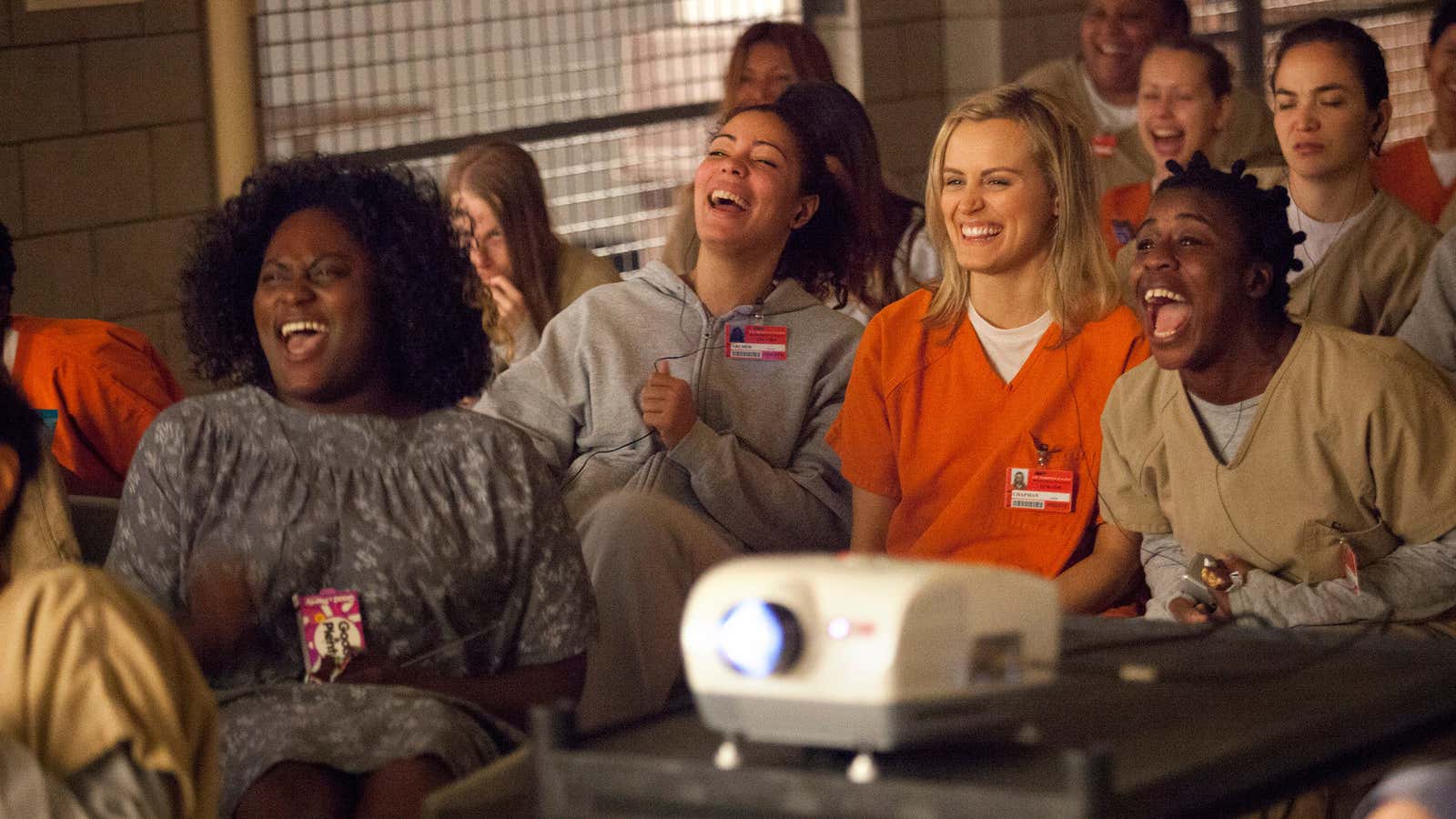Netflix has been coy about how “binge-watching” is affecting its business, but it may drop a big hint in its earnings report later today. And if it does, investors could get hit pretty hard.
The issue is how Netflix accounts for the cost of its original programming—shows available only on Netflix such as the Washington political drama House of Cards and prison comedy Orange is the New Black. In the TV industry, huge expenses for programming are usually recorded over an extended period to avoid a lopsided hit to the balance sheet. The standard accounting practice is to spread out, or amortize, the cost of a TV show while it is on the air.
But Netflix doesn’t have “air,” per se, and it releases full seasons of its original programs all at once. The shows remain available for a long time, but evidence suggests that viewing is concentrated near the premiere date, with people watching multiple episodes in one sitting—hence, “binge watching.” As a result, a full season of a Netflix original show is probably consumed much faster than a traditional TV show with once-a-week episodes.
That makes it more complicated to determine how these shows should be recorded on Netflix’s balance sheet. What the company currently does is spread out the cost of its original shows over four years (more, if the show has multiple seasons). For instance, Netflix paid about $100 million for two seasons of House of Cards, and it will be amortizing that expense through at least 2017.
Four years is a long time, especially if most of the people who are going to watch the first season of House of Cards have already watched it. There’s a strong argument to be made that Netflix should amortize the cost of House of Cards and other original shows faster than it does now. That would force the company to record significantly higher expenses upfront.
Netflix has said it is weighing the question. Last quarter, it said, “We are in the early stages of original content and continue to monitor whether the viewing pattern is higher than initially expected in the first few months to suggest that we amortize at a faster initial rate, and then to continue on a straight-line basis for the remainder of the amortization period.”
Translation: Our earnings may take a hit in the short term.
Amortization is a wonky but crucial issue for Netflix, which spends a lot for the TV shows and movies its subscribers can watch online. As of June 30, the company had slightly more than $3 billion of spending on content that it still hadn’t recorded as an expense and will amortize over the years to come.
If Netflix does change the way it accounts for original programming, that will be a strong indication that binge-watching is, indeed, a real phenomenon. The company, which doesn’t release viewing figures, has sent mixed signals on the issue. It praises itself for revolutionizing the way television is consumed (“House of Cards is literally the first show for the on-demand generation,” said chief content officer Ted Sarandos) but downplays the trend at the same time (“Occasionally they binge, and that makes a great story, but most of the time it’s just a single episode like you read the chapter of a book,” CEO Reed Hastings said recently.)
The accounting change may not come in today’s earnings report. But when it does, the initial impact will be on Netflix’s stock. The longer-term impact will be a better understanding of the company.




